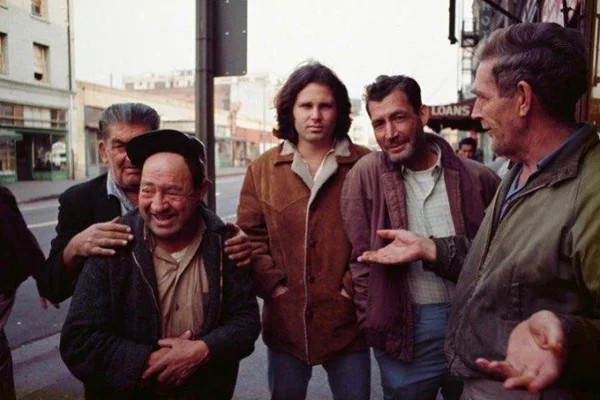Why didn’t Kamala Harris and the Democrats just take the billion dollars they raised for her campaign and hand them over to Donald Trump to help him pay his legal debts and get on with the task of leading the country that his opponents apparently are too inept to understand and win over.
Somewhere in the confines of the White House, away from advisors, press, and dignitaries, President Joe Biden is likely stewing over the recent election results. It’s hard not to imagine him wondering how things went this way. After all, he could’ve stayed in the race, gotten his “butt kicked,” and saved everyone the billion-dollar bill that has now come to symbolize a hard-won but ultimately hollow campaign.
Vice President Kamala Harris, who raised a fortune to prove herself in the battle for the White House, entered the race confident that she could do what Biden himself would struggle with this time: defeat Donald Trump.

Harris faced a nearly impossible task. Trump’s image—polarizing as it is—remains potent, and despite his controversies and legal entanglements, he has maintained his hold on the national psyche. His conviction, an unprecedented blemish on any former president, didn’t hinder his ability to re-energize a base that sees him as a symbol of defiance against the so-called “establishment.” Despite mounting legal concerns and a bruised reputation, Trump harnessed voter frustration and again edged out a Democratic rival, leaving Democrats and Harris supporters wondering what went wrong.
In the coming months and years, historians and pundits will inevitably pore over the events of Harris’s campaign, scrutinizing each moment in hopes of identifying what could have changed the outcome. How did she lose this seemingly winnable fight? Was America simply not ready for a woman president? Did the electorate have unresolved issues with Harris herself—an ambiguity about her identity, her approach, her fit with the times?
The history of Harris’s candidacy is not an isolated moment in American politics but a fragment of a much larger debate. This election seems to have raised questions that reach back through generations. In 2008, Barack Obama became the first Black president, a milestone hailed as a monumental shift in America’s self-image. But in hindsight, one might ask: Did the country really elect a Black president, or was it more comfortable with a man who happened to be Black, a candidate marked by his charisma, brilliance, and capacity to navigate identity without self-consciously presenting it?
Harris’s identity was far from her sole defining trait, but it could not help but play a role in the public’s perception of her. The weight of history and precedent presses differently upon women in American politics. We’ve yet to elect a woman to the highest office, a fact that remains glaring. And while progress has certainly been made, questions remain about what America expects from women in power, particularly those whose background challenges traditional molds.
Harris, as a trailblazer, bore the weight of history but also faced the issue of her personal and political presentation. At times, she seemed to emphasize aspects of her identity—her heritage and background—in a way that appeared, to some, incongruent with her established public persona. She seemed to walk the difficult line of balancing her authentic self while also trying to fit into the political molds voters have traditionally accepted. Yet in a country as diverse as the United States, a fragmented electorate brings out fragmented perceptions, leading many to wonder: Was the loss a rejection of Harris as an individual or a response to the ideals and expectations she represented?
In the end, her defeat is a stark contrast to the optimism that greeted Obama’s election over a decade ago. Then, it seemed that racial and cultural divides could be bridged, that a post-racial America was within reach. Today, that optimism has soured, replaced by a national divide that has left even well-qualified, competent candidates unable to connect across the board.
The Democratic Party itself now finds itself in a difficult position. At a time when the nation is split nearly down the middle on nearly every major issue, the usual strategies seem no longer to work. For a party that prides itself on inclusivity and forward-thinking, the stark reality is a deep frustration. Hillary Clinton was once the Democratic Party’s chosen contender, the woman whose credentials and experience stood as testament to her qualifications.
In 2016, however, Trump surprised everyone with a victory that seemed improbable, given his lack of political experience. Clinton’s campaign underestimated Trump’s appeal to those who felt neglected by the system. Fast-forward to now, and it seems the Democratic Party still struggles to navigate the currents that carried him to power and have kept him afloat despite his many setbacks.
Some argue that the problem for Democrats goes beyond individual candidates; it’s systemic. There’s a feeling that Democrats have failed to engage deeply with the frustrations felt across the heartland and in rural communities, where jobs, health care, and family stability are paramount. While they have made strides in representing the increasingly diverse makeup of America, there’s an impression among many that this progress has been more symbolic than practical. Policies don’t always reach the people who need them most, and promises don’t always become realities. For voters, patience wears thin, and resentment festers.
If the disappointment surrounding this election has any silver lining, it may lie in the questions it forces Democrats to ask. Perhaps the party must now address whether its strategy aligns with its message. How does it reach the voters who feel abandoned? How does it support diverse candidates without making them appear as symbols first and leaders second?
The GOP, for all its divisions, has presented a united front by allowing Trump to remain its figurehead, his shortcomings somehow emblematic of a larger disdain for what his supporters view as elitism. The Democratic Party, on the other hand, has struggled with cohesion. Though their message is one of progress, the medium has faltered—candidates with too much ambition and too little practical impact have left voters skeptical. As a result, there’s a persistent feeling among Democrats that victory remains tantalizingly close yet out of reach.
And so, somewhere in the White House, Biden may indeed be thinking of what might have been if he’d stayed in the race. He may feel a sense of regret for the course taken, for the billion-dollar efforts that ended in a bruising loss. Yet he, too, understands the weight of precedent, the difficulty of pushing forward in a time when the old strategies no longer work.
For Harris, the loss is surely personal, but it’s also bigger than any one campaign. She carries the hopes of a generation and the frustrations of a nation still grappling with the complexities of identity and change. For Democrats, the loss is both sobering and deeply frustrating, a reminder that even the strongest alliances and the most significant progress are fragile.
If there’s a way forward, it must include a reckoning—a candid look at what has been working and what hasn’t. In the aftermath of Harris’s loss, Democrats would do well to recognize that some answers lie not in Washington but in the far reaches of the country, where voters still wait for a reason to believe.
TONY CASTRO, the former award-winning Los Angeles columnist and author, is a writer-at-large and the national political writer for LAMonthly. org. He is the author of the forthcoming novel The Book of Marilyn. He can be reached at tony@tonycastro.com.





